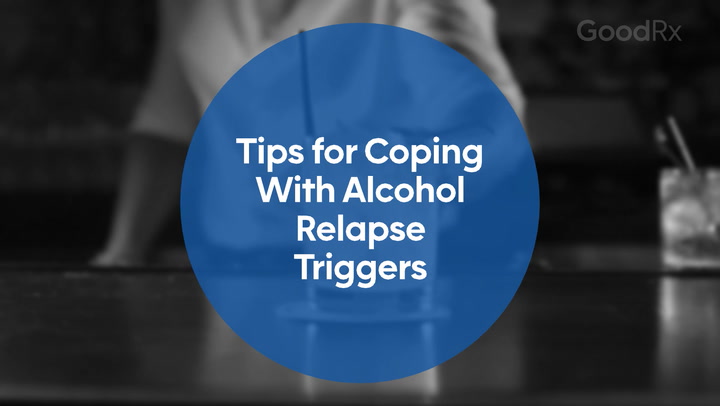
Could You Have a Caffeine Addiction (and What Can You Do About It)?
Key takeaways:
Caffeine can be addictive. But caffeine addiction (also called caffeine use disorder) is not technically recognized as a health condition.
Signs of caffeine addiction include making failed attempts to cut back, continuing to consume caffeine despite negative effects, and experiencing withdrawal symptoms when not having caffeine.
The FDA recommends that adults limit their caffeine intake to 400 mg per day and gradually decrease the amount they consume over time.
Table of contents
If you’re like many people, your morning doesn’t feel complete until you’ve had a nice, warm cup of coffee. About 80% of American adults consume caffeine each day.
The FDA recommends that adults limit their coffee intake to 4 or 5 cups per day. But many people are unaware of how much caffeine they actually consume. And you may even suspect your reliance on caffeine is starting to feel like an addiction.
Is caffeine addictive?
Yes, caffeine can be addictive. In fact, multiple studies have shown that caffeine addiction does exist and can lead to poor health outcomes.
Caffeine can cause similar changes to chemicals in your brain as other addictive substances. Like other substances, caffeine can activate reward centers in the brain and cause a release of dopamine, which is the ultimate feel-good chemical. Dopamine creates a powerful, pleasant sensation that motivates you to repeat whatever actions lead to the increased release of dopamine.
However, caffeine’s impact on dopamine is less reinforcing than the impact of drugs like cocaine. This explains why caffeine can lead to addiction for some people, but it is not as addictive as certain types of drugs. You might experience headaches and fatigue if you try to stop having caffeine, but your chances of successfully kicking the habit are high.
What are the symptoms of caffeine addiction?
While scientists agree that caffeine can be addictive, caffeine addiction is not currently recognized as a mental health disorder. In "Diagnostic and Statistical Manual of Mental Disorders, Fifth Edition. DSM-5-TR," caffeine use disorder is included as a condition that requires further study.
The text proposes the following list of symptoms of caffeine addiction:
Making unsuccessful efforts to decrease caffeine use in the past
Continuing to consume caffeine even though it causes negative effects
Experiencing withdrawal symptoms when stopping or decreasing the amount of caffeine consumed
If you experience the three symptoms listed above, it’s possible that you may have a caffeine addiction. In addition, you may experience other substance use disorder symptoms, like:
Increasing the amount of caffeine you consume over time, or consuming it for longer amounts of time than you intended
Needing to consume more and more caffeine to get the same benefits
Spending a significant amount of time and energy getting and consuming caffeine
Having cravings for caffeine when you’re not consuming it
What are the health risks of consuming too much caffeine?
Consuming moderate amounts of caffeine is associated with some health benefits. But in larger amounts, caffeine can have short- and long-term health consequences.
The negative short-term effects of caffeine can include:
Gastrointestinal problems
Increased heart rate
Increased blood pressure
Heart palpitations
The negative long-term effects of caffeine can include:
Increased risk of osteoporosis
There are caveats in both of the above cases, however. The increased risk of osteoporosis with caffeine may be minimized by having normal calcium intake. And it’s unclear exactly how much caffeine affects pregnancy.
Keep in mind that energy drinks are linked to a higher risk of negative health effects than other forms of caffeinated beverages, like coffee and tea. These drinks are typically consumed in large amounts on rare occasions, which means a person’s tolerance to the effects of the caffeine in these beverages can be low. These drinks may also contain large amounts of sugar and other additives that are associated with certain health risks.
Does excess caffeine negatively affect your mental health?
At low and moderate doses, caffeine has been shown to have positive effects on mental health. These potential effects include increased alertness and improved mood. However, at higher doses, caffeine can have negative effects on your mental health.
The potential negative effects of caffeine include:
Increased anxiety, especially for people who have a preexisting anxiety disorder
Insomnia
In rare cases, manic or psychotic symptoms in people with a preexisting mood or psychotic disorder
One of the most common ways that caffeine can affect your mental health is by interfering with your sleep. Poor sleep can lead to worsening mental health overall. And, for this reason, it’s generally best to drink coffee early in the day, rather than in the afternoon or evening.
What are the symptoms of caffeine toxicity?
Caffeine toxicity can occur when you consume large quantities of caffeine. The symptoms of caffeine toxicity can include:
Dizziness
Anxiety
Tremors
Fast heartbeat
Sweating
Irritable mood
Frequent urination or inability to hold urine
Upset stomach
In rare instances, severe medical complications and even death can occur as a result of caffeine toxicity. If you or someone you know is experiencing symptoms of caffeine toxicity, seek medical attention right away.
Do you get withdrawals from quitting caffeine?
If you ingest caffeine regularly and have developed a tolerance, you can experience withdrawal symptoms when you stop. The symptoms of caffeine withdrawal can include:
Headache
Fatigue
Depressed mood
Irritability
Fogginess
Poor concentration
Drowsiness
Nausea or vomiting
Constipation
Joint and abdominal pain
Stiffness
Hand tremors
Increased heart rate
Changes in blood pressure
Increased urination
The severity of caffeine withdrawal symptoms depend on how much caffeine a person has been consuming on a daily basis.
How long does caffeine withdrawal last?
Symptoms of caffeine withdrawal usually begin within 12 to 24 hours of stopping caffeine intake and peak within 2 days. Though, the symptoms can last 2 to 9 days in total.
Withdrawal from caffeine can be very uncomfortable, but it is not dangerous. So if you’re trying to kick the habit, you can rest assured that after a week of not consuming caffeine you should feel better. Be sure to talk to your healthcare provider about the best ways to approach quitting caffeine and how to manage withdrawal.
How can you quit caffeine?
Medical professionals recommend gradually reducing the amount of caffeine you consume, rather than stopping abruptly. Taking a gradual approach reduces the likelihood of withdrawal symptoms, like headaches.
A good first step is to start tracking how much caffeine you consume in a day. From there, you can switch to less-caffeinated options and lower your intake of these items over time.
As you gradually quit caffeine, it can also be helpful to:
Drink more water
Get additional sleep to help combat fatigue
Exercise to increase your energy
The bottom line
Caffeine is a stimulant that is found in coffee, tea, certain sodas, and energy drinks. At low-to-moderate doses, caffeine is generally safe. But consuming large amounts of caffeine is associated with health risks, including caffeine addiction.
If you think you may be addicted to caffeine, consider gradually decreasing the amount you consume over time and eliminating energy drinks completely. You may experience uncomfortable withdrawal symptoms at first, but they should go away within a week.
Why trust our experts?



References
Addicott, M. A. (2014). Caffeine use disorder: A review of the evidence and future implications. Current Addiction Reports.
American Medical Association. (2022). What doctors wish patients knew about the impact of caffeine.
American Pregnancy Association. (n.d.). Caffeine during pregnancy.
Berman, N. K., et al. (2022). The effects of caffeine on bone mineral density and fracture risk. Osteoporosis International.
Ferré, S. (2016). Mechanisms of the psychostimulant effects of caffeine: Implications for substance abuse disorders. Psychopharmacology.
Heaney, R. P. (2002). Effects of caffeine on bone and the calcium economy. Food and Chemical Toxicology: An International Journal Published for the British Industrial Biological Research Association.
ICD-11 for Mortality and Morbidity Statistics. (2023). Disorders due to substance use.
National Institute for Occupational Safety and Health (NIOSH). (2020). Caffeine & long work hours. Centers for Disease Control and Prevention.
Poole, R., et al. (2017). Coffee consumption and health: Umbrella review of meta-analyses of multiple health outcomes. BMJ: British Medical Journal.
Princeton University Health Services. (n.d.). Caffeine.
Sajadi-Ernazarova, K. R., et al. (2022). Caffeine withdrawal. StatPearls.
Striley, C. L. W., et al. (2011). Evaluating dependence criteria for caffeine. Journal of Caffeine Research.
Sweeney, M. M., et al. (2020). Prevalence and correlates of caffeine use disorder symptoms among a United States sample. Journal of Caffeine and Adenosine Research.
Temple, J. L., et al. (2017). The safety of ingested caffeine: A comprehensive review. Frontiers in Psychiatry.
Uddin, S., et al. (2017). Neuropsychological effects of caffeine: Is caffeine addictive? Journal of Psychology and Psychotherapy.
U.S. Food and Drug Administration. (2018). Spilling the beans: How much caffeine is too much?
Van Dam, R. M., et al. (2020). Coffee, caffeine and health. The New England Journal of Medicine.
Wang, H. R., et al. (2015). Caffeine-induced psychiatric manifestations: A review. International Clinical Psychopharmacology.
Willson, C. (2018). The clinical toxicology of caffeine: A review and case study. Toxicology Reports.
If you or someone you know struggles with substance use, help is available. Call SAMHSA’s National Helpline at 1-800-662-4357 to learn about resources in your area.

























